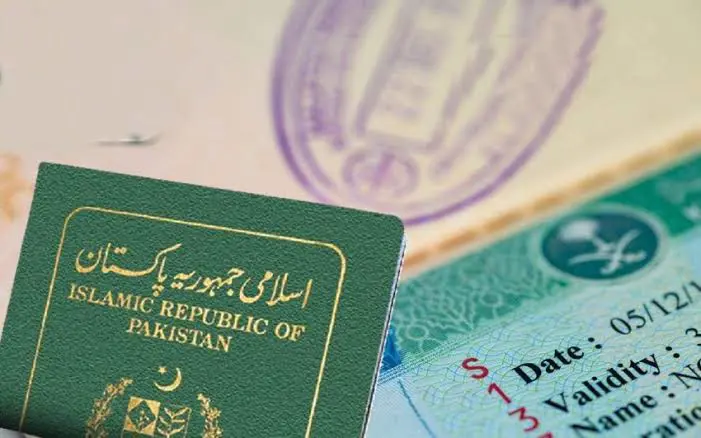
Saudi Arabia has recently implemented a temporary suspension on the issuance of "block work visa quotas" for nationals from a specific list of countries. This significant move, while initially causing considerable concern and disruption for businesses and individuals, appears to be a dynamic situation with updates emerging frequently.
What are "Block Work Visa Quotas"?
To understand the impact of this suspension, it's crucial to know what "block work visa quotas" entail. A block visa is a pre-approval granted by the Saudi Ministry of Human Resources and Social Development (MHRSD) to companies. It allows them to recruit a designated number of foreign nationals collectively, rather than applying for individual visas.4 This system streamlines the hiring process for businesses, particularly those with large-scale recruitment needs in sectors heavily reliant on expatriate labor, such as construction, hospitality, and domestic services.
The Initial Pause and Affected Nationalities
The temporary hold on block work visa quotas was initially announced around late May 2025. The function for allocating these block visas was removed from the Qiwa platform, Saudi Arabia's digital labor management system, effectively pausing the bulk hiring of foreign workers from the listed nations.
The nationalities initially affected by this pause include
- Algeria
- Bangladesh
- Egypt
- Ethiopia
- India
- Indonesia
- Iraq
- Jordan
- Morocco
- Nigeria
- Pakistan
- Sudan
- Tunisia
- Yemen
It's important to note that some sources also mentioned Turkiye in the initial list, though more recent updates primarily focus on the 14 nations above.
Reasons Behind the Suspension
While Saudi authorities have not issued a formal, comprehensive rationale for this specific suspension, several factors are believed to be at play, often coinciding with the annual Hajj pilgrimage season and broader strategic objectives:
Hajj Season Management: The timing of the initial suspension coincided with the peak Hajj pilgrimage season (early to mid-June 2025). During this period, Saudi Arabia experiences a massive influx of pilgrims. The suspension of certain visa categories, including block work visas, as well as temporary restrictions on other visa types (like Umrah, family, business, and even some tourist visas) for the same nationalities, is understood to be a measure to manage overcrowding, enhance regulatory oversight, and prevent the misuse of non-Hajj visas for pilgrimage purposes. There have been concerns in previous years about individuals entering on non-Hajj visas and overstaying to perform the pilgrimage, leading to safety issues and strain on infrastructure.
"Saudization" Initiative (Nitaqat Program): The suspension aligns with Saudi Arabia's overarching "Saudization" initiative (Nitaqat Program), a key component of Vision 2030. This national campaign aims to boost the employment of Saudi nationals in the private sector by increasing local hiring quotas.By temporarily limiting the influx of foreign workers in bulk through block visas, the government may be encouraging companies to prioritize and explore Saudi talent pools. The Saudization targets are expected to expand incrementally through 2028 across various sectors.
Labor Market Regulation and Control: The move can also be seen as part of a broader effort to enhance regulatory oversight in immigration and employment sectors. By pausing new block visa allocations, the government gains tighter control over foreign labor flows and may be using this period to assess and refine its labor market needs and policies. This includes addressing issues like illegal employment, where some individuals might enter on one type of visa and engage in unauthorized work.
Impact of the Pause
The temporary hold has had several immediate and potential ripple effects:
- Delays for New Quotas: Companies accustomed to recruiting from the affected countries have faced a freeze on new block visa quotas, disrupting their recruitment pipelines.27
- Processing Delays for Existing Applications: Even for block visas that were previously approved and work entry visas already under process, delays were expected, and in some cases, experienced.28
- Uncertainty for Travelers with Valid Visas: A significant concern for affected individuals with valid work entry visas who had not yet traveled to Saudi Arabia was their eligibility to enter the country.29 Airlines advised travelers to confirm their eligibility with their airline prior to departure.30
- Impact on Key Sectors: Sectors heavily reliant on migrant workers, such as construction, hospitality, and domestic services, were likely to see disruptions, potentially requiring companies to adjust project timelines, delay recruitment, or seek alternative labor sources from unaffected regions.31
- Increased Pressure on Recruitment Agencies: Recruitment agencies and employers have been urged to anticipate longer processing times, track regulatory updates closely, and maintain transparent communication with clients and candidates.3233
- Economic Impact on Sending Countries: For many of the affected countries, remittances from workers in Saudi Arabia provide essential income support to families and contribute significantly to their GDP. A prolonged suspension could have a notable economic impact on these nations.
The Evolving Situation: Recent Updates (as of June 12-13, 2025)
Crucially, the situation is dynamic. Recent reports, as of June 12-13, 2025, indicate that the temporary hold on block work visa quotas has been lifted for the previously affected nationalities.34 This suggests that the initial pause was indeed temporary and likely tied to the Hajj season.
Furthermore, it has been clarified that affected nationals holding valid work entry visas who were yet to travel to Saudi Arabia to complete their residency process are now generally permitted to travel to and enter the country. However, the advice to confirm travel eligibility with airlines prior to departure remains prudent due to the fluid nature of such policies.
Broader Context: Other Visa and Labor Law Changes in 2025
It's important to consider this temporary block visa quota hold within the broader context of Saudi Arabia's ongoing reforms:
- Temporary Work Visa Suspension: In April 2025, Saudi Arabia also suspended the issuance of Temporary Work Visas (TWVs), affecting all new and pending applications.36 There is no official timeline for the resumption of this program.
- Saudization Expansion: The country continues to expand Saudization requirements, particularly in sectors like healthcare and tourism, with quotas ranging from 30% to 100% depending on the position, to be introduced gradually between 2026 and 2028.
- Labor Law Amendments (February 2025): Significant amendments to the Saudi Labour Law came into force in mid-February 2025. These changes aim to modernize employment practices, enhance worker rights, and align with Vision 2030. Key amendments include:
- Clearer Contract Rules: Indefinite-term contracts for non-Saudis are now treated as one-year renewable agreements.
- Extended Probation Periods: Up to 180 days (approximately six months), during which either party can terminate the contract without restrictions.
- Stronger Worker Protections: Including enhanced leave entitlements (e.g., extended maternity leave to 12 weeks, new paternity leave, bereavement leave for siblings), anti-discrimination duties on employers, and mandates for housing and transportation support or allowances.
- Digital Platforms: New digital labor platforms like "Ajeer Al-Hajj" have been introduced to streamline seasonal Hajj work and facilitate temporary permits.
- Increased Penalties: Proposed changes to labor law penalties, with significant fines for violations such as hiring non-Saudi workers without permits or in professions restricted to Saudi citizens.
- Multiple-Entry Visa Limitations: Earlier in 2025, Saudi Arabia also revised its visa policies for the same 14 countries, restricting multiple-entry visas for business, tourism, and family visits to single-entry visas valid for 30 days during the Hajj period, primarily to curb unauthorized Hajj participation and illegal employment.
Conclusion
The temporary hold on "block work visa quotas" for certain nationalities in Saudi Arabia appears to have been a short-term measure, likely linked to the management of the Hajj season and potentially reinforcing the Kingdom's broader Saudization goals. The recent lifting of this hold brings welcome relief to businesses and individuals.
However, the rapid succession of visa and labor law changes underscores Saudi Arabia's commitment to reforming its labor market and achieving the objectives of Vision 2030. Businesses and individuals seeking to work in Saudi Arabia must remain vigilant and continuously monitor official announcements and updates from the MHRSD, Saudi embassies, and reputable immigration law firms. The emphasis on digital platforms, enhanced worker protections, and the ongoing push for Saudization are key trends that will continue to shape the employment landscape in the Kingdom.
;More Travel News
-
 12-Aug-2025Luxury, Budget, or Adventure – Tours for Every Traveler: Finding Your Perfect Journey
12-Aug-2025Luxury, Budget, or Adventure – Tours for Every Traveler: Finding Your Perfect Journey -
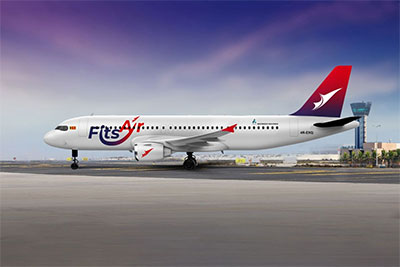 27-Dec-2025FitsAir to Launch Weekly Flights to Pakistan Starting January 2026
27-Dec-2025FitsAir to Launch Weekly Flights to Pakistan Starting January 2026 -
 28-Nov-2019Snowfall in Murree Northern Area Expected Dates
28-Nov-2019Snowfall in Murree Northern Area Expected Dates -
 02-Jan-2026Norwegian Airline Norse Atlantic Gets Green Light for Pakistan Routes
02-Jan-2026Norwegian Airline Norse Atlantic Gets Green Light for Pakistan Routes -
 24-Sep-2021Turkey Begins Its Premier Turkish Tech Event TEKNOFEST In Istanbul
24-Sep-2021Turkey Begins Its Premier Turkish Tech Event TEKNOFEST In Istanbul -
25-May-2023Countries that you can visit with USA 5 year visa for Pakistani Passport
-
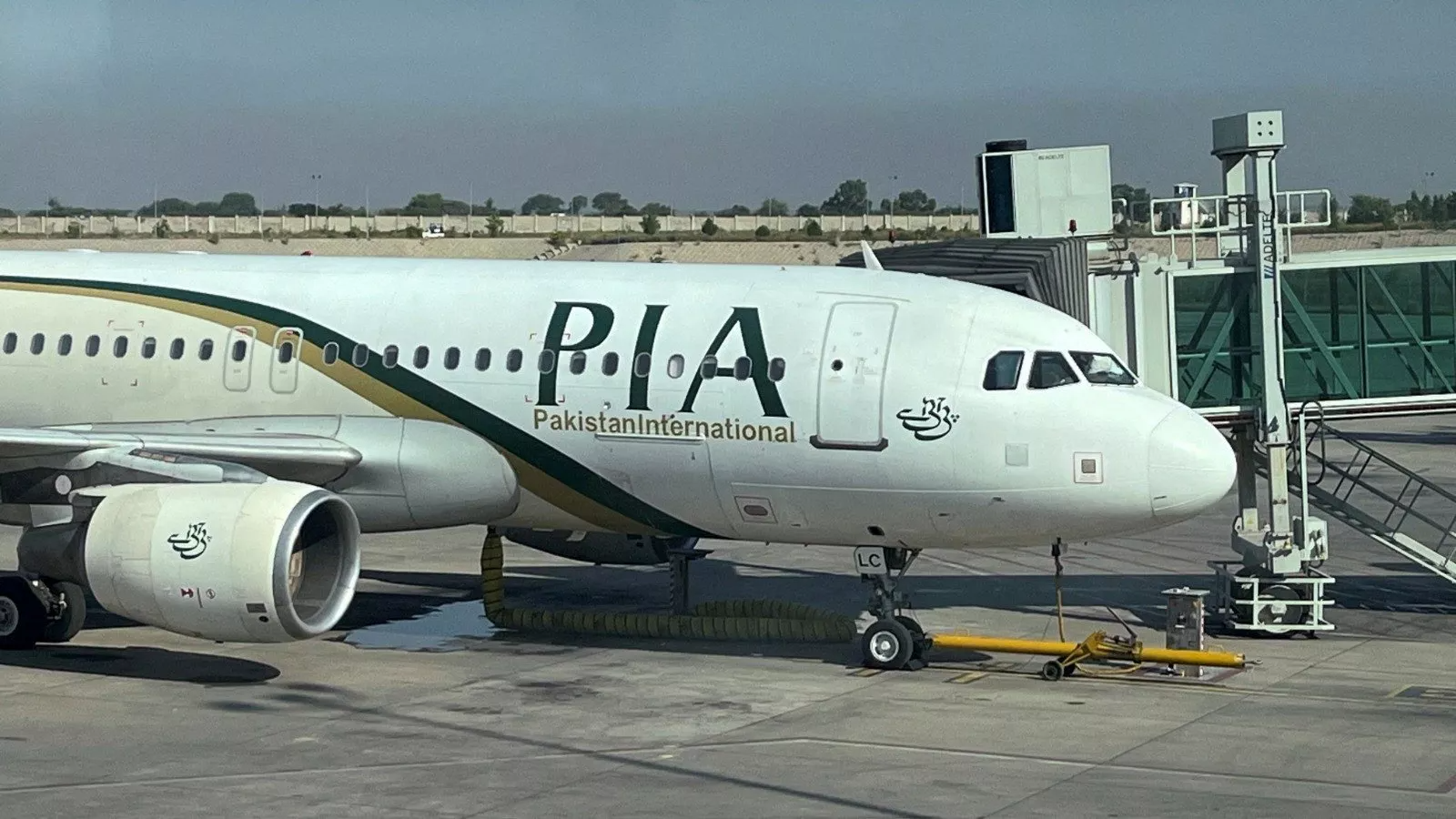 08-May-2025Nationwide Airports Fully Operational: PAA Reassures Air Travel Safety Amidst Regional Dynamics
08-May-2025Nationwide Airports Fully Operational: PAA Reassures Air Travel Safety Amidst Regional Dynamics -
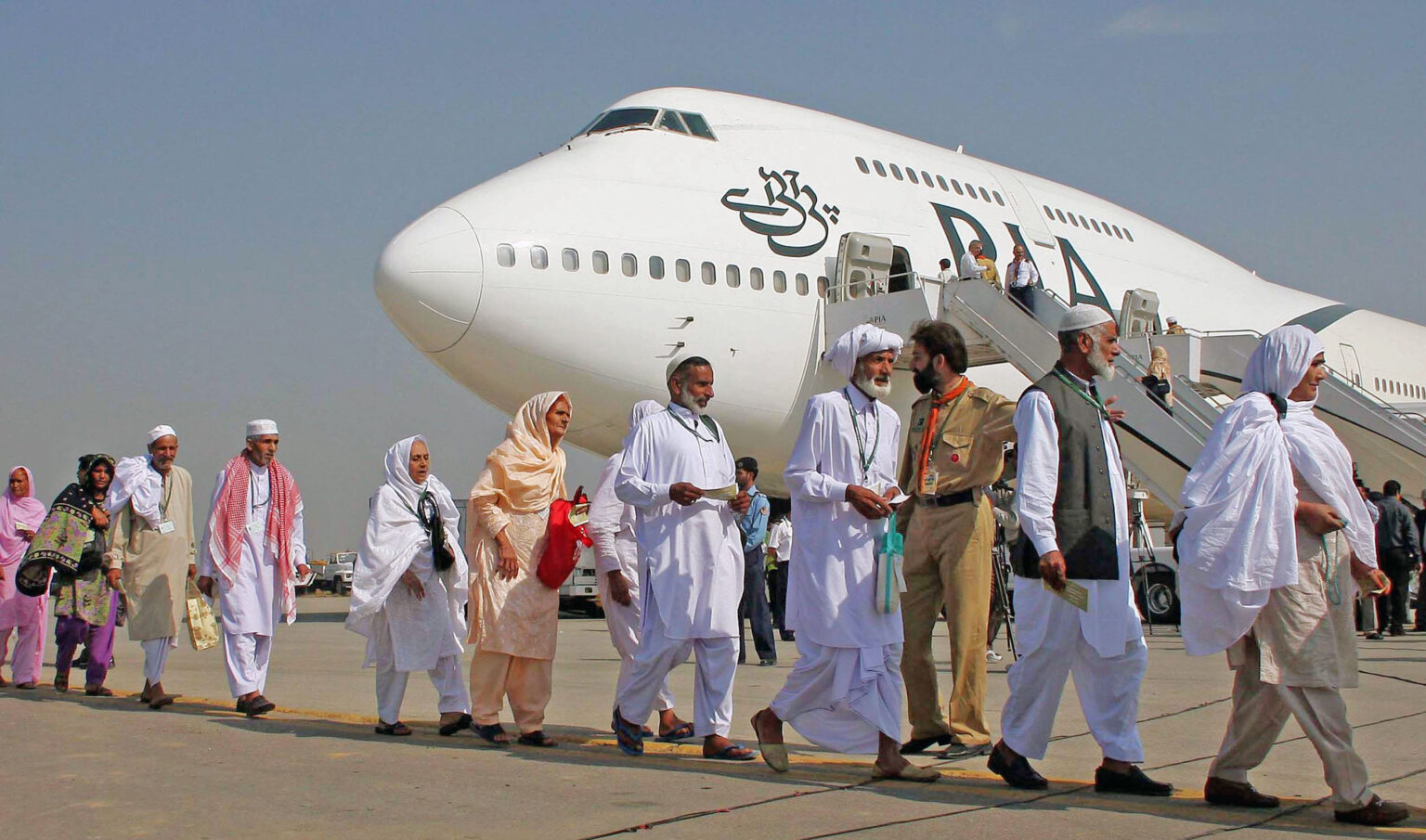 08-May-2025Pakistan Establishes Dedicated Hajj Flight Helpline Amidst India-Pakistan Tensions Impacting Air Travel
08-May-2025Pakistan Establishes Dedicated Hajj Flight Helpline Amidst India-Pakistan Tensions Impacting Air Travel -
 25-Nov-2025Best Time to Get the Lowest Umrah Ticket Price
25-Nov-2025Best Time to Get the Lowest Umrah Ticket Price -
 07-Aug-2020The Pakistan Government Decides To Re Open Tourism Activities Across The Country
07-Aug-2020The Pakistan Government Decides To Re Open Tourism Activities Across The Country -
.webp) 14-May-2025Significant Changes to German Visa Rules: End of Remonstration Process in July 2025
14-May-2025Significant Changes to German Visa Rules: End of Remonstration Process in July 2025 -
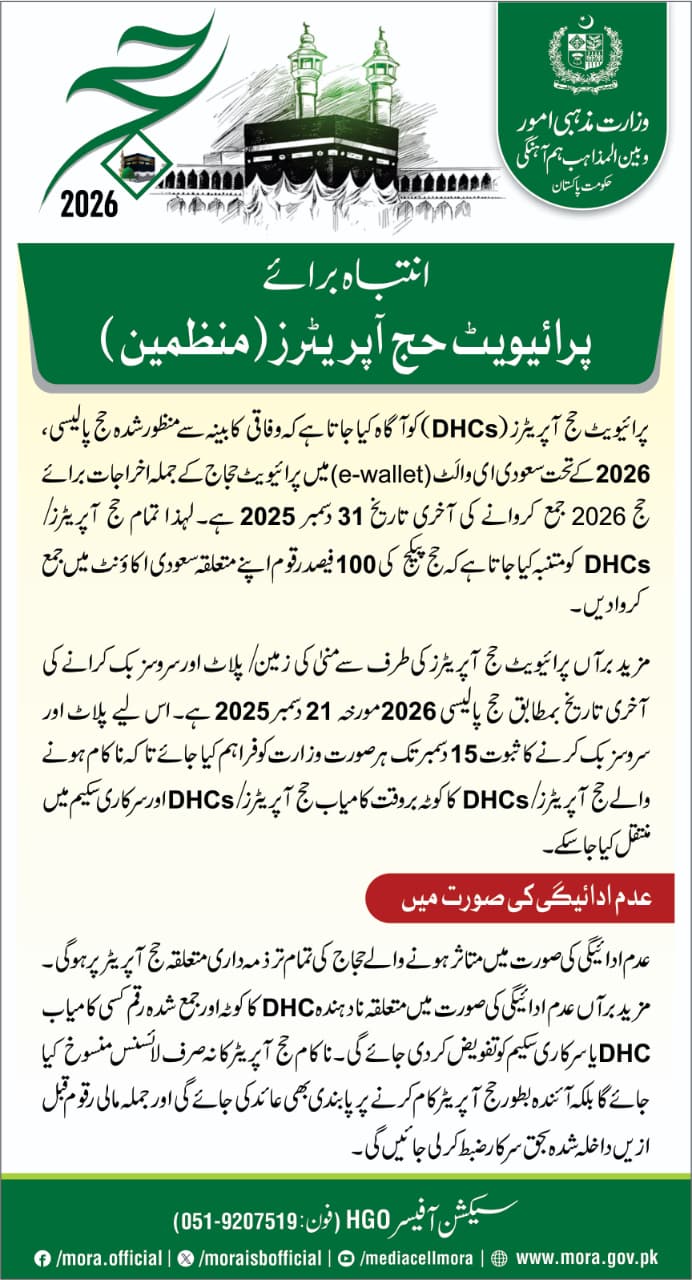 09-Dec-2025The Private Hajj Scheme 2026 Guide for Aspiring Pilgrims
09-Dec-2025The Private Hajj Scheme 2026 Guide for Aspiring Pilgrims
